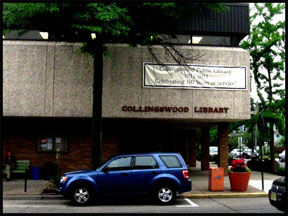I still remember the first time that I set foot in Giovanni’s Room, the beloved LGBT bookstore that recently closed its doors this past May. It was 1981, the year that I came out. I was in my early twenties. I had known about Giovanni’s Room, the gay and lesbian beacon on the corner of Twelfth and Pine Streets in Center City, Philadelphia. The store was founded in 1973.
The storefront was a rare and welcome presence for gay men and lesbians like myself who came out in a hostile time before the television shows Will and Grace, and Ellen, but after the Stonewall Gay Liberation Riots in 1969 which meant that gay bookstores, gay, lesbian and women’s presses were in existence. Gay marriage was just a glimmer in the eyes of our forebears (such as Gertrude and Alice) and still way in the future for us.
Stepping into Giovanni’s Room in 1981 felt like an act of courage and it was. Years later, the bookstore hosted Rita Mae Brown as a guest signing her books. I stood in the long line that went up the narrow staircase to the second floor where Rita Mae was signing her books. I arrived upstairs just in time to hear Rita Mae ask Ed Hermance, the owner, how many rocks had been thrown through his store windows over the years. As I recall, it was a high number.
On that first visit to Giovanni’s Room in 1981, I bought a book about Sojourner Truth, the African American abolitionist (born into slavery) and women’s rights activist. The book was hardback and had an off-white dust jacket with a pebbly feel to it. The title was Sojourner Truth: A Self Made Woman. It was in many ways a safe pick for me. If I ran into someone on the street and they asked me where I had been, I could be honest and say Giovanni’s Room which was a feminist bookstore, too. But Sojourner Truth had been an important figure in history and someone who gave me courage in my young life.
After my first trip to Giovanni’s, it was easier to go back. Inside the walls of that corner city house turned bookstore, I found a community of past and present. It was where I heard activists and authors of all types speak. And it was where I became most intimately acquainted with James Baldwin (whose pioneering novel Giovanni’s Room the store was named for), Willa Cather, Sappho, of course, and so many others.
Finally, Giovanni’s was a place where I came to find myself as a lesbian and as an author. I had been writing since childhood and began taking it seriously at the age of twenty-nine, the same age I learned that Gertrude had been when she started writing as a daily practice. When I began to get published in journals and anthologies, I would come into the store and find myself on the shelves. A little while later, when a small press began publishing my chapbooks, they were in the poetry section. A poster with one of my poems on it was in the rack upstairs. In the last five years, when I had readings for a novel and then a memoir, I had my book launches at the store.
I was part of many readings at Giovanni’s over the years, but that is what not I remember most. I remember that Giovanni’s shaped me as a writer and that Ed Hermance nurtured my talent. Ed and I would often talk when I came into the store, and he was always let me know when a new book had come out that I should check out, including a new translation of Sappho and a collection of James Baldwin’s letters. It was more than just good business. Ed really cared.
One of the people we both cared about was Toni Brown, the late lesbian poet, who worked at Giovanni’s Room for a stint when she first moved to Philadelphia from Amherst, Massachusetts. Toni died, unexpectedly, at the age of fifty-five. I had a very large print made from a photograph that I had taken of Toni made for her memorial service in April of 2008. The photograph was displayed on the stage of The Painted Bride Art Center where the memorial was held. Toni was a tall African American woman, about the same height as I, and the service was packed with a diverse crowd. I remember standing on the stage talking to Ed Hermance, both of us crying, and me handing him the photograph. He displayed it in the store for a time, on the wall behind the cash register. I remember thinking that I could walk into Giovanni’s Room at any time and see Toni.
Losing Giovanni’s Room is in many ways similar to losing a good friend. It was a place that contained our history, as a movement, as a people. It was a place that gave testament to our lives. It was a store that gave so many of us a safe haven and, in reality, saved many lives.
It was a place where we could be ourselves.
Note: as of this writing, Giovanni’s Room is still awaiting the decision of a potential buyer — which most likely will come by the middle of June.
From The Huffington Post





























